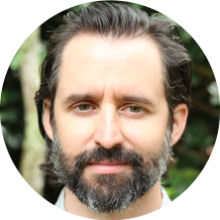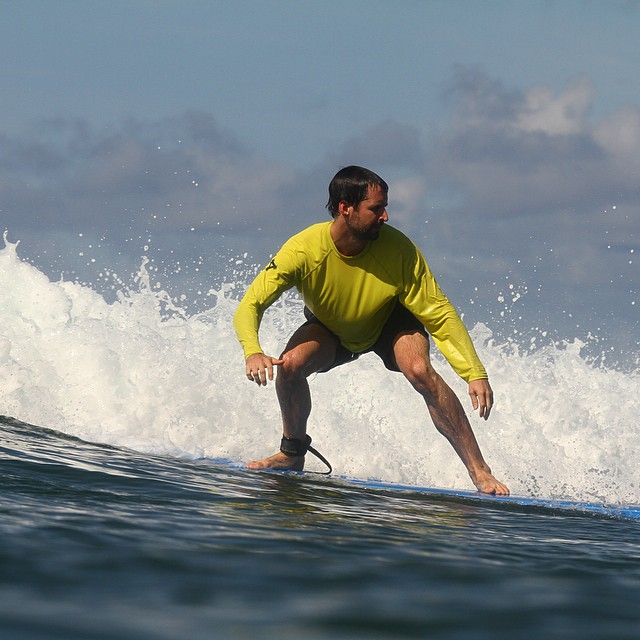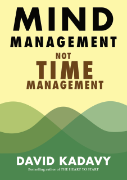Subscribe to blog updates via email »
Ignore Most Waves
Suddenly, I was being pushed with little effort. Ripples of blue-tinted coral were speeding by underneath me, with speckles of sunlight cheering me on. I knew now that I had picked the right wave, and it was ON.
I followed the four easy steps for getting to my feet “cobra pose, knees, left foot, pivot.” Suddenly, I was surfing like – like someone who had some clue what he was doing. And, I was surfing on the famous North Shore of O’ahu, Hawaii, no less.
Fortunately, the waves that day were relatively small. I’ve spent most of my life in land-locked states, mind you, so the lessons I took were a good investment.
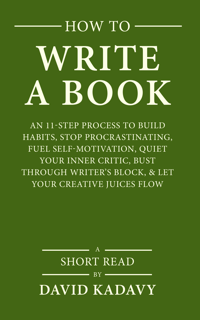
WANT TO WRITE A BOOK?
Download your FREE copy of How to Write a Book »
(for a limited time)
But, later in the week, I was confined to the shore. Just a spectator.
The waves had made it up to their famous North Shore proportions. Only the very best surfers were out there.
Success is about catching the right wave
So many things in business are like surfing. Your success depends a great deal upon which “waves” you choose to take. Waves of demographic, technological, and market trends present themselves. Your position, by way of your talents, resources, and season in life, dictate which waves are best for you to ride.
I noticed something important about the best surfers I saw out there. They didn’t surf many waves.
Beautiful towers of turquoise would roll towards the surfers, and people watching from shore would speculate about whether they would take them.
“Oh, that’s a good one!” the retiree from Indiana might shout from behind his BluBlockers.
But most of the time, the surfers wouldn’t take the waves. They’d all just duck right under them, as we watched, confused, and disappointed.
As I watched more closely, I started to notice patterns. Whether or not a surfer took a wave seemed to depend upon a number of different factors.
“How close is it to breaking? Where, along the top edge of the wave, is it going to break first? Has someone already caught this wave? Will this wave throw me into the nearby rocks?”
To us amateurs on shore, it seemed like they were missing lots of opportunities. But the best surfers were calculating the potential cost, in wasted energy, of each attempt to catch a wave.
“I’d have to turn my board around in time to catch this wave. I’d have to paddle hard. If I catch this wave, it will break on me too fast. I’d have to paddle back out to a good spot, so it’s just not worth it.”
They didn’t want to take just any wave. They wanted to take THE wave.
Why you take the wrong waves
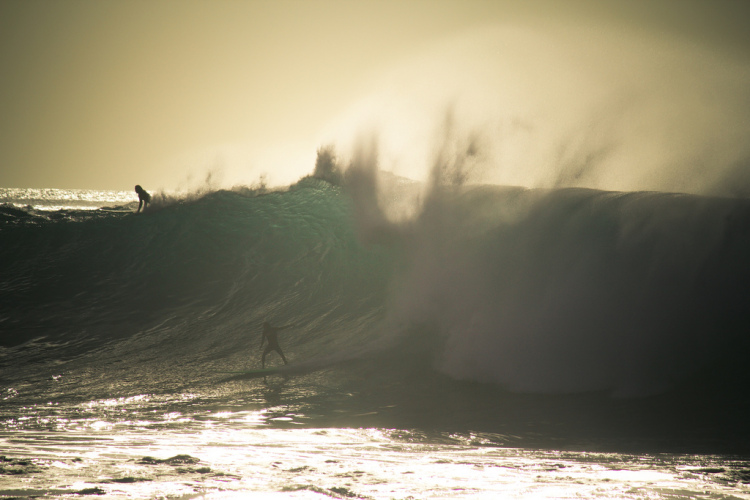
Would you take this wave?
Flickr: stevenworster
We naturally hate to miss out on opportunities. It’s called “loss aversion.” Our little brain calculators for measuring what it costs to do something are more sensitive than our little brain calculators for measuring what we’ll gain from it.
Do you waste your energy on any “waves” like this?
- Filling up your Pocket account with links, and getting stressed out about not having the time to read all of those articles. Never considering how little you had to gain from bloggers and journalists who are writing to make a quota, instead of sincerely trying to purvey well-considered thoughts.
- Accepting every coffee meeting proposal, sometimes even when you don’t want to, when you clearly have little common ground with the person inviting you.
- Designing & running A/B tests that don’t answer important questions, and don’t even have the upside potential to be worthwhile. Being oblivious to the precious mental energy that could be used on something else.
- Building fancy landing pages and payment processing setups for products you aren’t even sure you’ll make one sale on.
The best surfers knew which waves to take because of experience. Their little brain calculators were sifting through thousands of previously-taken waves to decide which ones were worth taking. Surely, they had taken waves that weren’t worth taking before.
A wave analysis framework
You could just expect wisdom like this to grow from haphazard experimentation, but if you had a framework on which to bind your experiences, that wisdom could fill in faster.
Whenever you consider taking a wave, ask yourself these questions:
- What would be the ultimate outcome of taking this opportunity?
- Do I have similar experiences to draw from to succeed? If not, is there a smaller “test” I can put myself through?
- What are the risks associated with taking this opportunity?
- If I take this opportunity, what opportunities will I have to forego?
How “ignore most waves” helped me 5x my email list & become a best-seller
I’ve used this framework to catch the big wins I’ve wanted, while ignoring the small wins I could do without.
- Saying “no” to almost every client to free up my mind for building the business that fit my preferred lifestyle.
- Marketing specifically to one community, to debut my book in the top 20 on all of Amazon.
- Launching an email course with a deadline, to grow my email list from 6k to 30k.
- Almost never running A/B tests. (Why make a half-assed A and B, when you can make a full-assed A?)
Have you learned from taking any waves that didn’t turn out to be worthwhile? Are there waves you’re considering taking? What factors are you considering? Share in the comments!
My latest: "Ignore Most Waves" A thought framework for success http://t.co/88TpjSdqBB pic.twitter.com/7AEQh0OTr3
— ? David Kadavy | Time ?? Mind Management (@kadavy) October 14, 2014
